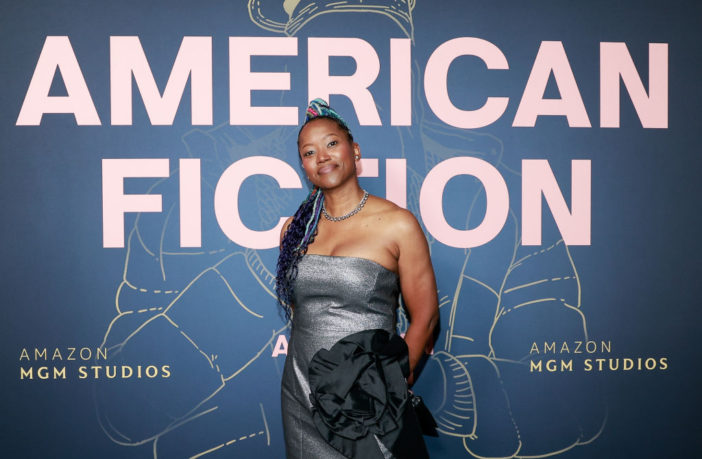From Living Single to Get Out, Erika Alexander does no wrong whenever she pops up on the screen. She’s amazing on TV and she’s refreshing to see on the movie screen. In American Fiction, she doesn’t just simply understand her role but brings a sense of understanding and intelligence to the film that is a breath of fresh air.
Erika Alexander spoke with EBONY about the magnificence of American Fiction and the necessity of critiquing Black art.
EBONY: How were you able to understand and connect with your character Coraline in American Fiction?
Erika Alexander: Coraline is the quiet storm because she’s gone through things in life and she’s kind of stabilized her life. She has found herself. She’s happy and fulfilled. She comes to him to his life thinking that she could try again and maybe risk it all for him because he’s such a unique person, but it doesn’t mean that he’s ready for her and vice versa.
I just love seeing you pop up in movies and TV show episodes. It’s refreshing to me.
Erika Alexander: I get to pop up in things like Get Out. It’s lovely to be invited to do anything. I’ve had the great pleasure of working with some first-time directors who are new masters in the game. I feel like I’m a good luck charm. Put me in that movie, it’s gonna be a hit.
Erika Alexander attends the Los Angeles premiere of American Fiction. Image: Courtesy of Stewart Cook/Getty Images.
How was it working with Cord Jefferson on his directorial debut?
Erika Alexander: I think I’ve learned as an actor—and maybe as a longtime journeyman— that first-time creators are often the best ones. It’s not a risk for me. I know how to do what I do. It’s an invitation for somebody to see me and I always say, if somebody sees you, then the last thing you want to do is blur the vision.
I spoke to Cord recently and he told me that it was a run-and-gun movie with little to no rehearsals. How was that experience for you?
Erika Alexander: Well, I didn’t have a rehearsal but you’re dealing with people like Jeffrey Wright, Tracee Ellis Ross, Issa Rae, Sterling K. Brown and Leslie Uggams—we’ve been rehearsing our entire life for these moments. All we need to do is come on set and have the confidence to know that we don’t need to do much. You can lay in the cut and say I don’t need to push.
What can people learn from watching Americacn Fiction?
Erika Alexander: I think the movie is compelling because it’s asking questions about race. Can artists who are Black create a counter-narrative? We’re asking people if Black people can recognize that they may not be “Black enough” to be successful in that paradigm. It’s a very confusing thing. We can be victims of our own success.
How should we, as Black people, critique Black art?
Erika Alexander: It’s very difficult for Black people to critique Black art. The damage and trauma that has been inflicted on us where we could only exist in a world where our past was erased and our future was uncertain, but our present had to be imagined by a new future. From Sexxy Red to Michelle Obama. It’s all in there. Who are we? It’s all in there.



